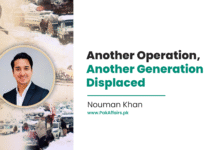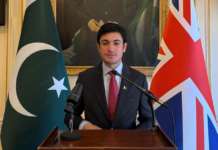Despite attempts, Pakistan still suffers from ‘confused governance’, in which weak federal and provincial governments are unable to match the necessary capabilities to mobilize human resources and deliver services.
The purpose of this article is to highlight a few of the origins of the issues in the country’s governance. These begin with the use of an out-of-date induction process that has been in place as the policy for decades. Both the Federal Public Service Commission and the Provincial Service Commission recruit incumbents for various offices, the vast majority of whom are misfit for the country’s most important jobs. As a result, this poor fit for the job will not produce results until these individuals retire, and the institution will continue to suffer.
Pakistan also lacks adequate policy-making mechanisms, which are essential for policy formation, policy analysis, policy evaluation, and implementation. The government solely considers the benefits of policy ideas in terms of future monetary costs, neglecting the fact that there are a number of intangible costs that affect both individuals and the country. Our governance structure is incapable of managing risks, procuring and contracting resources, overseeing processes and procedures, and assessing the impact and efficacy of decisions and actions. The economic and social development of a country is a primary responsibility of every government, yet it has remained a pipe dream for both policymakers and citizens.
At the moment, Pakistan is dealing with a number of governance issues in the areas of finance, economics, social development, and energy. All of these issues highlight how important it is for the government to serve the public interest in the areas of service delivery and public goods, while also posing a barrier to the country’s smooth and long-term development. Because of the governance structure, the government must devote more attention to the institutions, policies, and instruments that enable it to meet the needs and expectations of ordinary citizens and enterprises. The country must comprehend and assess how it can strengthen its ability to foresee and manage risk, as well as respond promptly to complex problems in rapidly changing scenarios across the country.
To summarize, in order to achieve economic growth and development, a country’s governance in the light of public administration policies must be re-examined. Priority should be given to macroeconomic and microeconomic management, political stability, and advances in public policy, administration, and institutional capacities.
We hear a lot these days about public and elite dissatisfaction with the country’s confused governance. Various formulae are being debated in an attempt to get out of this quagmire.
We are seeking an innovative formula in which institutions are managed by competent and relevant personnel; otherwise, the democratic continuity that we so proudly proclaim will appear to have been disrupted.
Confused Governance
Advertisement




